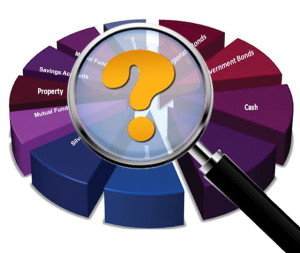 Once we know the Common Mistakes to avoid we can look at the typical type of investments and understanding them before we put in any sort of money in any schemes.
Once we know the Common Mistakes to avoid we can look at the typical type of investments and understanding them before we put in any sort of money in any schemes.
What are the typical investment products?
When you are new to investments it is advisable to opt for secured investments over speculative or fluctuating ones. Investment types can broadly be classified into two, Equity and Debt.
Equity is the one which is volatile and dynamic, it may give more returns but will also come with risks by which your invested money can go down in value. It involves trading in share markets or mutual funds and commodities.
Debt is usually the one which is risk free and stable and has a fixed rate of returns. In such investment you can be sure as to how much funds you will withdraw at the end of the tenure but the returns may be low.
Under these two categories you get several products from Life insurance, health insurance, pension schemes, Government bonds, Mutual funds, direct equity investments, bank FDs etc as your investment options. There will also be some products that aim to give you best of both worlds through various balanced funds, which will but a part of your invested money in equity and part of it in debt.
In our country, certain commodities are also hot favorite for investments; typically gold and silver. Again these are market dependent and equity like as they fluctuate on a daily basis.
Understanding various investment instruments:
Most legitimate investment products will most likely get you good returns over a period of 5-7 years. The risks are limited to an extent in professionally managed investment instruments as compared to investing in direct equity like trading in shares or commodities without having enough knowledge and exposure. Typically when starting off it is advisable to invest through professionally managed instruments or debt based schemes and gradually going towards direct equity and other avenues.
Equity investments deal with the markets and the upswings and down swings of the markets, directly affect your investment value. When young, it is the best time to start with some exposure to equity as in worst case scenarios you will have age on your side to make good any loss that you may incur due to the volatility of equity markets. However one should be careful of not putting huge sums in this type of investment and hope for your money doubling instantly. That could be catastrophic and very unpleasant. Taking the mutual fund route for equity investments is a good option.
Mutual Funds are offered by lot of reputed companies who have been in the financial business for decades and centuries. This investment type should be the option for a new investor looking to get a pie of the equity and commodities market. Just like mutual funds there are also Exchange Traded Funds (ETF) which invest in commodities like Gold etc. These have dedicated fund managers to handle and manage your investments. They are paid professionals whose job is to make sure your invested money is well allocated and even in most volatile markets they will make sure the losses are kept to a minimum. You, as an individual may not know when to exit or enter the market, which shares to buy etc. Mutual Fund houses through their experience can handle such situations thus reducing your risks to a good extent. If the markets perform miserably, your fund value is bound to go down but it won’t be as bad if you had invested directly in the markets. However, do remember that mutual funds are long term investments and importantly ‘mutual fund investments are subject to market risks’. For more in-depth understanding of Mutual Funds you can refer here.
Debt instruments are typically schemes like National savings certificate, Government bonds etc. This investment type has low rate of returns when compared to equity schemes but will give you assured returns, for you to be sure of getting an X amount at the end of the tenure. Some of these will also carry some sort of tax benefits with it. Some of the Government bonds will also have longer investment tenure as long as 7 to 9 years.
Other secured investment options are the traditional fixed deposits, recurring deposits, Public provident funds etc. These all will also have a fixed assured rate of return. Balanced funds as mentioned above will have a portion of debt and a portion of equity and try to combine the best of both worlds. These make more sense if there is too much volatility in the markets and you do not want to risk too much initially.
Now that you have a basic overview and idea of what various investment options include and how are they classified, in the next part we will see some good investment options for beginners to get on track with their savings and investment habits and build a sound investment foundation.
Investment Tips for Beginners: Part 4
so good.
Hi Vishnu P,
Thanks a lot
Your blog is nice. Your sharing tips are all awesome. All information is relevant. Your tips are relevant for visitors. Your blog provide the accurate and update information to the clients.
Regards: Stock Tips | Equity Tips
Thanks a lot for the encouraging words.